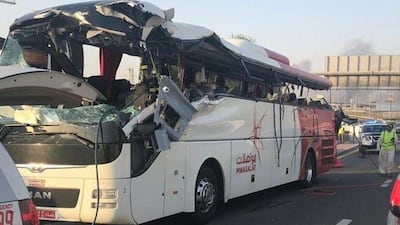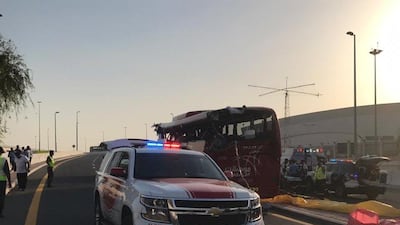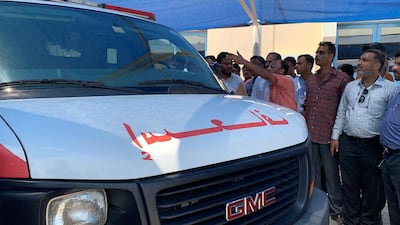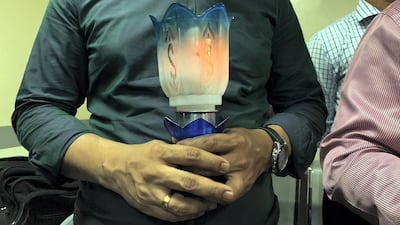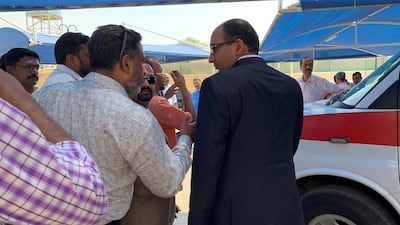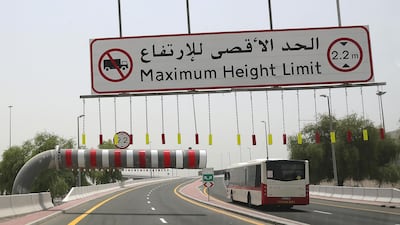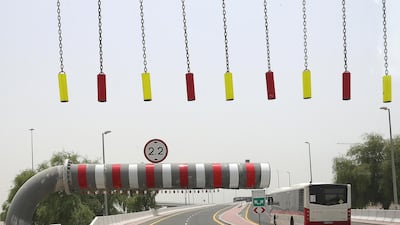Survivors and relatives of victims who died in a bus accident in Dubai last month are calling on authorities to remove the height restriction barrier that the driver crashed into when hurtling over the speed limit.
Families of the 17 people who died when the Omani driver struck the overhead barrier near the Al Rashidiya exit on June 6 said removing the metal sign could prevent future accidents.
Zidan Firoz Pathan, a teenage survivor still remembers the terrifying sound of the crash and seeing the bodies of his parents Firoz Khan and Reshma Pathan who died as a result.
“I keep worrying about the barrier on that road,” he said.
“The seven years punishment for the driver means nothing to me. But I wish the Dubai government would remove the barrier from all of Dubai. Yes it was the driver’s fault but the barrier should be made of wood or other lighter material.”
On Thursday, a Dubai court sentenced the driver, 53, to seven years in jail. He was also ordered to pay Dh200,000 in blood money to each of the victims' families, and a fine of Dh50,000.
The impact was so severe that it sliced through the length of the left portion of the 30-seater bus.
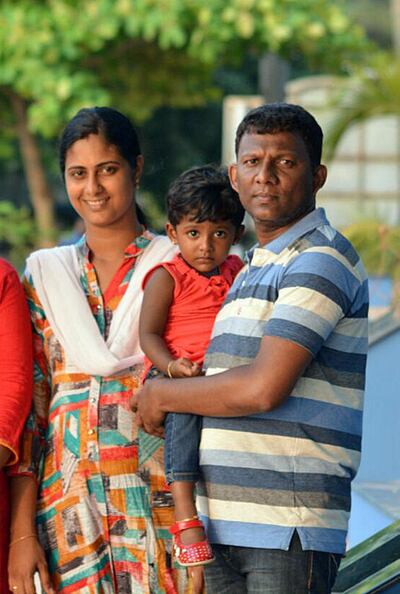
“That barrier is too heavy and should be taken down, in fact all such barriers in Dubai should be removed,” said Nahimshad Chonokadavath, a Dubai resident who lost his uncle Ummer Chonokadavath and cousin Nabil Ummer in the crash.
“A rubberised material could be used that would damage or hit the windscreen but not take 17 lives,” said Amal Dev, a relative of Deepa Kumar, a Dubai resident who died in the crash.
Mr Kumar’s wife Athira and their four-year-old daughter, Amulya, survived the accident.
“The driver has been punished according to the rules of the country but corrective measures must be taken to prevent the same accident happening in the future.”
In court this week, the driver’s lawyer blamed authorities for incorrectly positioning the height barrier and told judges it should not be made of solid steel, as per international and GCC standards.
However, a report submitted to the court showed the safety measures on the road, including warning signs and a height restriction chain, complied with international guidelines.
Prosecutors said the driver failed to see the warning signs alerting motorists about the barrier. Police and lawyers said the driver exceeded the speed limit of 40kph by more than 50kph, exacerbating damage to the vehicle and its passengers.
But relatives have urged authorities to reassess the metal barriers.
“I don’t know about GCC standards but the barrier was so strong it was not even slightly damaged after the accident,” Mr Dev said.
Relatives must now file a civil case against the owners of the bus company and the insurance firm for damages and compensation claims.
Ghassan El Daye, head of litigation Middle East with law firm Charles Russell Speechlys, said families have been awarded in excess of the dia, or blood money, amount in previous cases in Dubai.
“It is up to the discretion of the court but it can reach a million dirhams per victim for damages and compensation depending on the particulars of each case, the amount the victim was earning and his or her age,” he said.
"Everybody knows the driver cannot pay the dia money and as per UAE law the driver is criminally responsible and the company is liable under the civil law."
The bus company is responsible for a civil claim since the driver as an employee has a contract with the firm, Mr El Daye said.
“In the UAE, there is no class action so each victim’s family must file a separate case in the civil court to show the financial loss they have suffered,” he said.
The court could also appoint an expert or a committee to calculate the damage and suffering of the injured and for each victim’s family.


